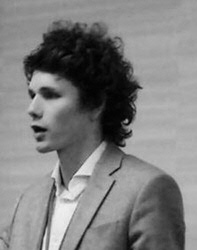Open access through the eyes of an early career researcher

Paul Plazier, PhD candidate at the Faculty of Spatial Sciences of the University of Groningen, investigates the subject area of transport geography, focusing on the rise of e-bike mobility in the Netherlands. As an early career researcher taking his first steps in academic publishing, Paul considers open access as an appealing, yet complex phenomenon. He shares his thoughts on open access with us; we try to remedy Paul’s concerns.
Paul Plazier is convinced that academic publishing should be openly accessible: Society should have an opportunity to benefit from academic knowledge. This knowledge must be widely shared and be visible. However, Paul finds it not easy to walk his talk. To him, open access publishing still is a complex system in which universities, faculties, researchers, publishers, editors and reviewers are involved. Paul thinks to have identified three main barriers for researchers to go open access:
Researchers should be stimulated to publish open access
In his view, the costs for open access publishing are a threshold. Open access publishers often require authors to pay article processing charges (APCs). This can make it unattractive to publish open access, especially for (younger) researchers with limited budgets, Paul thinks. In his opinion, it is not desirable to ask authors to pay for publishing. Paul appreciates that his Faculty of Spatial Sciences has provided an open access stimulation fund since last autumn and is happy about this incentive and support. Also the several agreements with publishers, in which the University of Groningen is participating, that (partly) exempt authors from paying APCs are supposed to stimulate researchers to publish open access. The University of Groningen Library provides information on these deals and is happy to assist researchers choosing which publishers.
A second barrier is the jungle of types of open access: gold, diamond, hybrid or green? Paul still finds this confusing. Clear communication about the different forms of open access is thus essential for researchers.
A third barrier can be the danger of being victimized by predatory publishers who offer options for open access publication. Paul is fully aware of risks of these ‘publishers’. To avoid pitfalls, Paul uses the Directory of Open Access Journals to check whether a journal uses an appropriate quality control system. If in doubt whether a journal is safe for publishing or not, authors can contact the University of Groningen Library.
Paul wants to be visible and he uses social media channels to promote his academic work. A disadvantage in this regard is the accessibility of articles which are not open access. Therefore, Paul is interested in green open access as a way to archive and promote his work. Green open access should be adequately facilitated and supported by the University, and his work should be presented in the most attractive way, Paul says.
The current academic publishing paradigm should change in favour of open access
He thinks that the current academic publishing paradigm is still too aimed to closed access. To enhance open access, this paradigm must change. Paul Plazier is convinced that active guidance and support from the University, faculty and departments, especially for early career researchers, would help. On the other hand, the playfield of academic publishing is complex, with many vested interests, and it is understandable that this won’t change overnight.
| Last modified: | 17 August 2021 09.13 a.m. |

